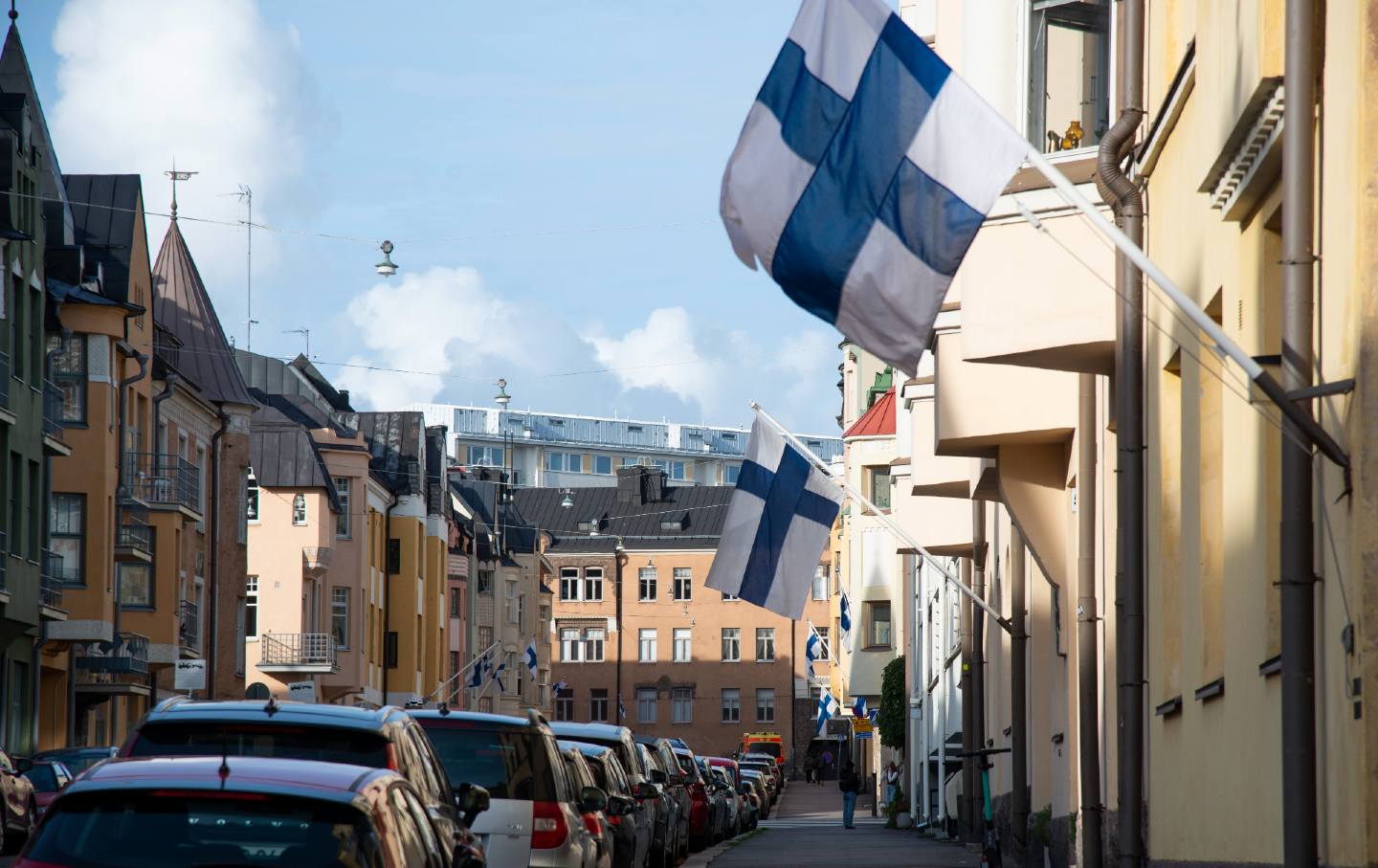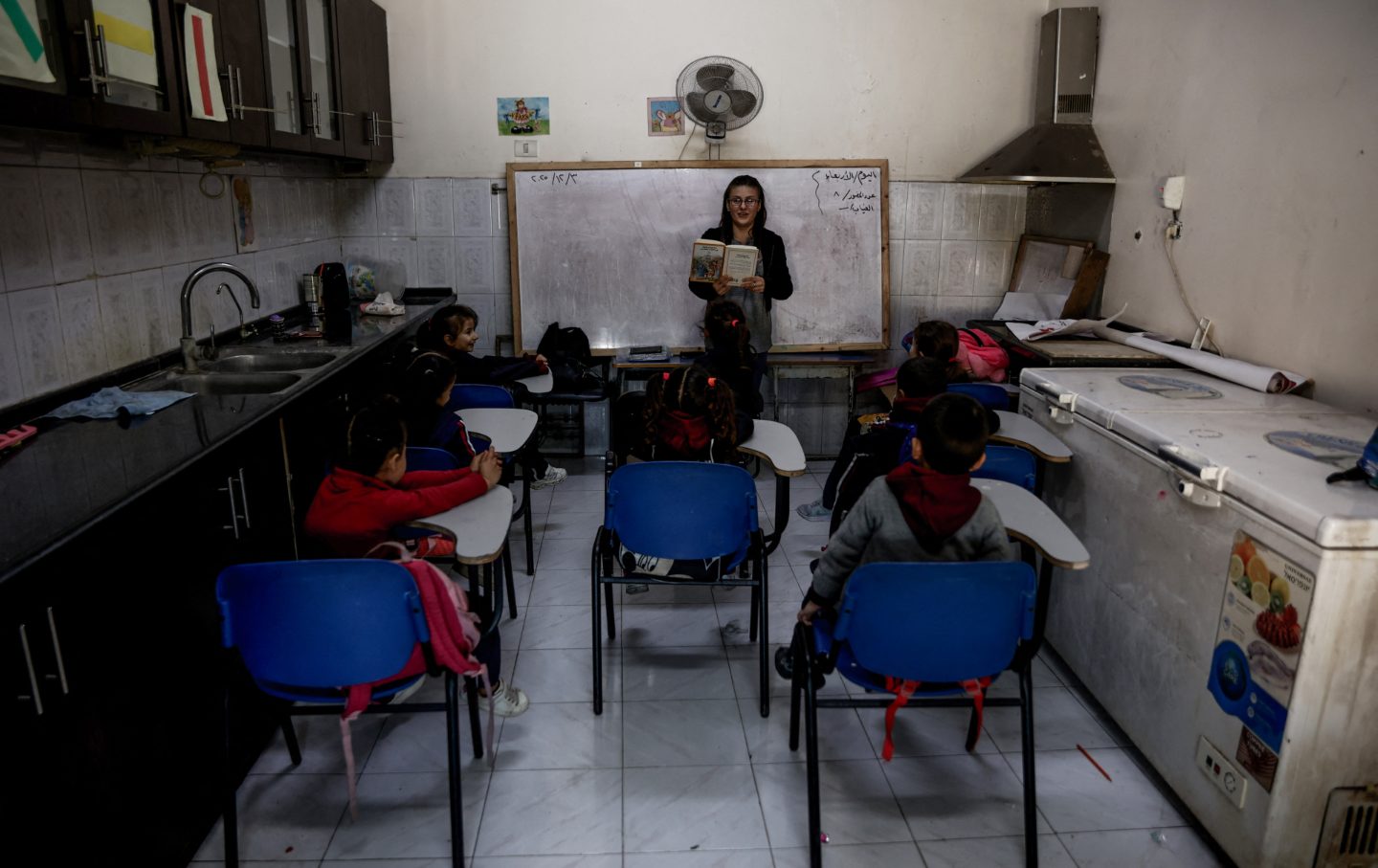Racism?? In Finland!!??
Trouble in the “World’s Happiest Nation.”

Helsinki—Racism doesn’t come readily to mind when you think of Finland. The country has been lauded—justifiably so—as the plucky nation that joined NATO last spring, defying neighboring Russia; it is considered a model social democracy. For six straight years, it came out on top of the World Happiness Report issued by the United Nations Sustainable Development Solutions Network. But racism, though rarely discussed, has long been a fact of life here. A 2018 EU survey of minority views in 12 EU nations found that Finland ranked first for racial discrimination, racist threats, and violent attacks.
But racism was never on Finland’s political agenda until the far-right Finns Party—think Marine Le Pen’s National Rally in France or Alternative for Germany—finished second in last April’s election. It’s now a powerhouse in the most right-wing government in recent history.
Like their right-wing counterparts across Western Europe, the Finns’ calling card is opposition to immigration—more precisely, non-white immigration. While the party has greeted Ukrainian refugees with open arms, it has posted a “not welcome” sign for Middle Eastern and African asylum-seekers. That posture violates basic human rights. It also spells disaster for a country that badly needs immigrants to bolster a sagging economy.
In no other EU nation except Italy does such an openly racist party hold the reins of power. “People who have consistently made racist statements are now running government departments. This could lead to normalizing racist views,” Aleksi Neuvonen, cofounder of Demos Helsinki, a nonpartisan social policy think tank, explained.
Finnish politics is usually a dozy affair, but this has been the summer of bombshells. In June, just days after the new cabinet had been announced, the government was engulfed in a series of crises, triggered by racist and neo-Nazi slurs from newly minted Finns Party cabinet members.
The economics minister, Vilhelm Junnila, was immediately in trouble because of his neo-Nazi ties. He spoke at a 2019 gathering of the who’s who of neo-Nazis in Finland, organized by the Nordic Resistance Movement, a terrorist organization bent on establishing a totalitarian neo-Nazi Nordic state. And while campaigning this spring, he joked about the number 88, code for the greeting “Heil Hitler.”
When the story broke, Junnila barely survived a no-confidence vote in Parliament. But after the Helsinki Sanomat, the New York Times of Finland, unearthed a speech he had delivered in Parliament that exhorted African women to have abortions as a solution to the climate crisis—“climate abortion,” he called it—he resigned. He had been on the job for just 10 days.
Junnila’s successor, Wille Rydman, has a similarly scurrilous track record. In messages to a former girlfriend that were published in the Sanomat, Rydman described Somalis as “spreading like weeds” and derided people from the Middle East as “apes” and “desert monkeys.” When his girlfriend said that if she had a child she’d like to give it a biblical Hebrew name like Emmanuel, he responded that “we Nazis do not really like that kind of Jew stuff.” Far from resigning, Rydman took the offensive—taking a leaf from Donald Trump’s playbook, he threatened to sue the newspaper for invading his privacy.
Deputy prime minister and Finns Party leader Riikka Purra wrist-slapped Rydman, calling his messages “inappropriate.” But Purra is hardly one to talk. In text messages posted 15 years ago on a far-right forum, she fantasized about like-minded Finns “in the stadium spitting on beggars and beating black children.” After a slanging match with immigrant teenagers, she wrote that “if they gave me a gun, there would be bodies on a commuter train.”
The new coalition government was elected on a pledge to cut welfare benefits in order to balance the budget, and Prime Minister Petteri Orpo dearly wants Parliament to focus on that agenda. Days before the autumn parliamentary session, which began on September 5, the government issued an anti-racism plan. It’s big on platitudes and generalizations but short on specifics, as you would expect from any document that the Finns Party was willing to accept. Some of the proposed initiatives, like a program to promote equality in the education system, sound promising. But the minuscule €1–1.5 million commitment, coupled with the government’s plans to increase tuition for foreign students and limit immigrants’ access to social benefits, give the game away.
The first order of business for the new session of Parliament was the anti-racism plan. The prime minister was content to deliver homilies about the necessity of eradicating racism. He sought a “common tone,” but Finns MPs weren’t having it. Jani Mäkelä, the Finns parliamentary party leader, had nothing to say about racism. Instead, he railed against the immigrant gangs that allegedly bully native-born Finns and a woke culture that, he claimed, condemned everything from board games to Eskimo ice cream bars as racist.
The opposition hit back hard, flagging the gap between the government’s words and its deeds. “Racist texts are at the heart of the conversation,” said one MP. “I’ve been spat on at a bus stop,” said Greens MP Fatim Diarra. “You have created an atmosphere of fear in Finland just because you are afraid of being different.”
Popular
“swipe left below to view more authors”Swipe →These passionate pleas went unheard—when the opposition introduced a series of “no confidence” motions, the government had the votes to beat them back. But if government ministers believed that the race issue would fade away when the “no confidence” motions were defeated, they were mistaken.
A highly placed government official, who requested anonymity so that he could speak candidly, told me that because of the brouhaha over racism and xenophobia, multinational corporations that had planned to make major investments in Finland are now having second thoughts.
What’s more, popular outrage over the racist Finns Party leaders and the vapidity of the government’s anti-racist agenda has surfaced. On a sunny September day, 11,000 Finns marched down Mannerheimintie, Helsinki’s Fifth Avenue, to protest racism and fascism in Finland. A rally on this scale is unheard-of in the land of Nordic calm, and while the atmosphere was end-of-summer upbeat, the message was blunt. ”Tolerating racism is racism,” the banners read. ”Racists out.”
This demonstration wasn’t a one-shot affair. Six weeks earlier, a crowd of 5,000—twice as many as the organizers of the event anticipated—had delivered the same message. And more marches are in the works—it’s Moral Monday in Helsinki.
“This is the biggest values challenge in generations,” Laura Saarikoski, editor of the Sanomat, told me. For Finland, it’s an existential moment, since what is at stake is the soul of the happiest nation in the world.
Disobey authoritarians, support The Nation
Over the past year you’ve read Nation writers like Elie Mystal, Kaveh Akbar, John Nichols, Joan Walsh, Bryce Covert, Dave Zirin, Jeet Heer, Michael T. Klare, Katha Pollitt, Amy Littlefield, Gregg Gonsalves, and Sasha Abramsky take on the Trump family’s corruption, set the record straight about Robert F. Kennedy Jr.’s catastrophic Make America Healthy Again movement, survey the fallout and human cost of the DOGE wrecking ball, anticipate the Supreme Court’s dangerous antidemocratic rulings, and amplify successful tactics of resistance on the streets and in Congress.
We publish these stories because when members of our communities are being abducted, household debt is climbing, and AI data centers are causing water and electricity shortages, we have a duty as journalists to do all we can to inform the public.
In 2026, our aim is to do more than ever before—but we need your support to make that happen.
Through December 31, a generous donor will match all donations up to $75,000. That means that your contribution will be doubled, dollar for dollar. If we hit the full match, we’ll be starting 2026 with $150,000 to invest in the stories that impact real people’s lives—the kinds of stories that billionaire-owned, corporate-backed outlets aren’t covering.
With your support, our team will publish major stories that the president and his allies won’t want you to read. We’ll cover the emerging military-tech industrial complex and matters of war, peace, and surveillance, as well as the affordability crisis, hunger, housing, healthcare, the environment, attacks on reproductive rights, and much more. At the same time, we’ll imagine alternatives to Trumpian rule and uplift efforts to create a better world, here and now.
While your gift has twice the impact, I’m asking you to support The Nation with a donation today. You’ll empower the journalists, editors, and fact-checkers best equipped to hold this authoritarian administration to account.
I hope you won’t miss this moment—donate to The Nation today.
Onward,
Katrina vanden Heuvel
Editor and publisher, The Nation
More from The Nation

The US Is Looking More Like Putin’s Russia Every Day The US Is Looking More Like Putin’s Russia Every Day
We may already be on a superhighway to the sort of class- and race-stratified autocracy that it took Russia so many years to become after the Soviet Union collapsed.

Israel Wants to Destroy My Family's Way of Life. We'll Never Give In. Israel Wants to Destroy My Family's Way of Life. We'll Never Give In.
My family's olive trees have stood in Gaza for decades. Despite genocide, drought, pollution, toxic mines, uprooting, bulldozing, and burning, they're still here—and so are we.

Trump’s National Security Strategy and the Big Con Trump’s National Security Strategy and the Big Con
Sense, nonsense, and lunacy.

Does Russian Feminism Have a Future? Does Russian Feminism Have a Future?
A Russian feminist reflects on Julia Ioffe’s history of modern Russia.

Ukraine’s War on Its Unions Ukraine’s War on Its Unions
Since the start of the war, the Ukrainian government has been cracking down harder on unions and workers’ rights. But slowly, the public mood is shifting.

I’m a Teacher in Gaza. My Students Are Barely Hanging On. I’m a Teacher in Gaza. My Students Are Barely Hanging On.
Between grief, trauma, and years spent away from school, the children I teach are facing enormous challenges.


